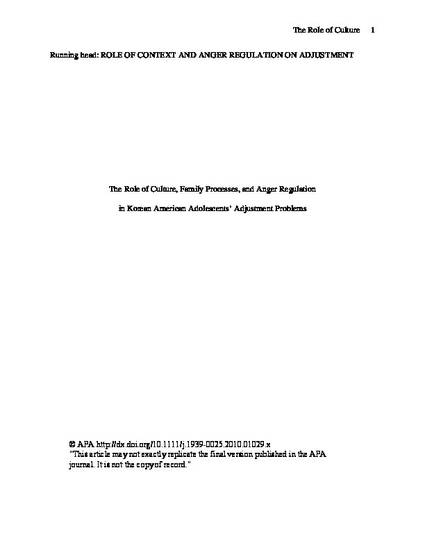
Using an ecologically informed, developmental psychopathology perspective, the present study examined contextual and intrapersonal predictors of depressive symptoms and externalizing problems among Korean American adolescents. Specifically, the role of cultural context (selfconstruals), family processes (family cohesion and conflict), and anger regulation (anger control, anger suppression, and outward anger expression) were examined. Study participants were N = 166 Korean American adolescents ranging from 11-15 (M = 13.0; SD = 1.2) years old. Results showed that depressive symptoms were significantly associated with lower levels of perceived family cohesion, higher levels of perceived family conflict intensity, and higher levels of anger suppression. Externalizing problems were associated with male gender, a weaker interdependent self-construal, higher levels of perceived family conflict, lower levels of anger control, and higher levels of outward anger expression. The distinction between specific vs. common factors associated with depressive symptoms and externalizing problems was discussed with an eye towards prevention or intervention strategies targeting specific coping mechanisms (e.g., generating alternatives to anger suppression) or developing psychoeducational approaches to facilitate family processes.
